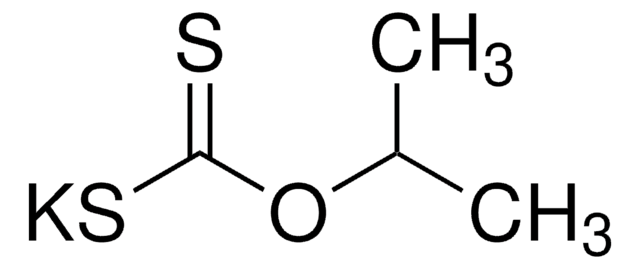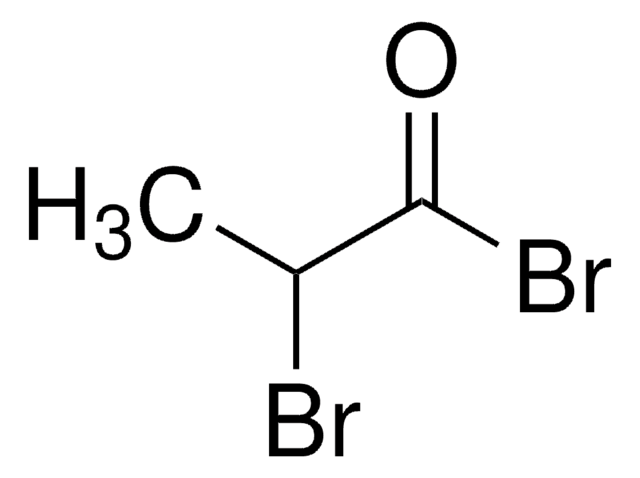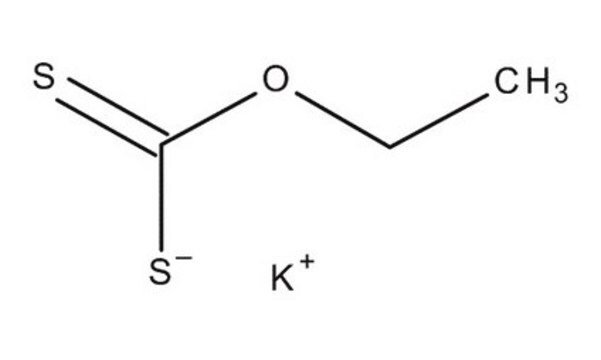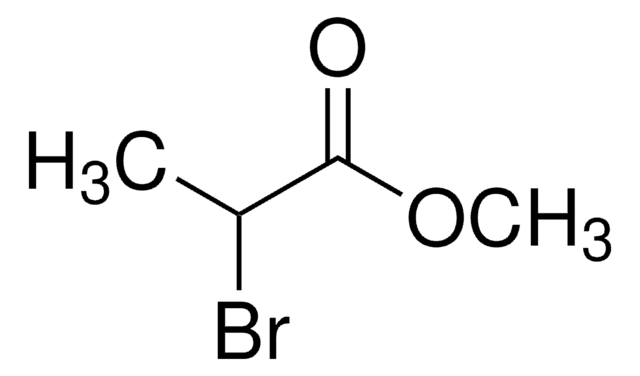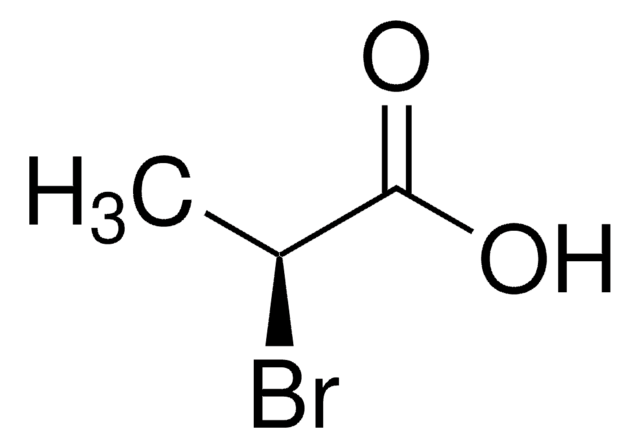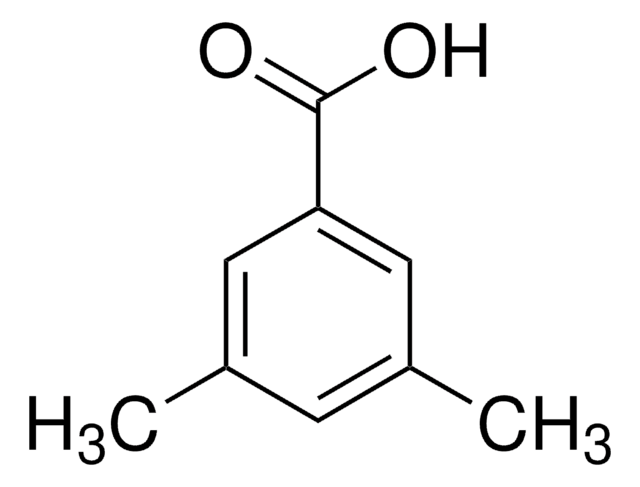254770
Potassium ethyl xanthogenate
96%
Synonym(s):
O-Ethylxanthic acid potassium salt, KEX, Potassium O-ethyl dithiocarbonate, Potassium xanthogenate
About This Item
Recommended Products
Assay
96%
form
powder
mp
210 °C (dec.) (lit.)
solubility
alcohol: soluble(lit.)
water: very soluble(lit.)
SMILES string
[K+].CCOC([S-])=S
InChI
1S/C3H6OS2.K/c1-2-4-3(5)6;/h2H2,1H3,(H,5,6);/q;+1/p-1
InChI key
JCBJVAJGLKENNC-UHFFFAOYSA-M
Looking for similar products? Visit Product Comparison Guide
Related Categories
Application
- in synthesis of unsymmetrical sulfides via cross-coupling reaction, using recyclable CuO nanoparticles under ligand-free conditions
- as surfactant to investigate the adsorption of colloidal dye Disperse Blue 3 onto pretreated polyester fabric
- in determination of microgram amounts of cadmium in water samples by substoichiometric radiochemical method
Signal Word
Danger
Hazard Statements
Precautionary Statements
Hazard Classifications
Acute Tox. 4 Inhalation - Acute Tox. 4 Oral - Eye Irrit. 2 - Flam. Sol. 1 - Skin Irrit. 2 - STOT SE 3
Target Organs
Respiratory system
Supplementary Hazards
Storage Class Code
4.2 - Pyrophoric and self-heating hazardous materials
WGK
WGK 3
Flash Point(F)
204.8 °F
Flash Point(C)
96 °C
Personal Protective Equipment
Certificates of Analysis (COA)
Search for Certificates of Analysis (COA) by entering the products Lot/Batch Number. Lot and Batch Numbers can be found on a product’s label following the words ‘Lot’ or ‘Batch’.
Already Own This Product?
Find documentation for the products that you have recently purchased in the Document Library.
Customers Also Viewed
Our team of scientists has experience in all areas of research including Life Science, Material Science, Chemical Synthesis, Chromatography, Analytical and many others.
Contact Technical Service
